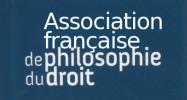Paper's abstract
Virginie
Lefebvre Dutilleul,
Ethical standards
Despite their apparent diversity, ethical standards issued by companies (codes of good practice, charters for sustainable development and ethical charters) deal with fairly harmonized topics, which evolve according to risks perceived. This practice came from the Anglo-Saxon world and is now shared by many listed European companies, of large and medium size. The trend also goes towards standardization. This point is illustrated in particular by the institution of ISO 26000 CSR and of the draft for ISO standards on anti-corruption matters.
These ethical standards have been developed to answer a major challenge - preserve the most important asset of companies, namely their reputation - and two types of texts. The first ones are incentive to establish these standards through compliance programs in order to benefit from lower penalties in case of violation. However, the most recent texts on the subject go further and now punish the lack of effective program. The second type of texts does not require the company to do anything, but to commu-nicate on what it does concerning CSR as in “comply or explain”, thereby encouraging virtuous behavior. Again, the trend is to reinforcement, as illustrated by the development of the requirements for transparency now layed down on companies in certain sectors.
The issue of the opposability of these standards constituting the soft law is a classic. The answers are clarified as ethical papers earn in substance and legal validity. Once these standards published, for example on the website of the company, they produce legal effects. Thus, under French law, the due process for amending policies and procedures must be followed for these standards to be opposable to employees. In addition, certain conditions must be met in order to fall within the scope of the simplified declaration of ethical alerts, as defined by the CNIL. Managers could be seen as responsible to their shareholders in case of false information on ethical topics. Finally, the amendment of such a communication in deceptive marketing practices is now offered the French judges , a inquiry has recently been opened on this basis.
The development of ethical standards, meeting the demands of stakeholders in a complex international environment asks the fundamental question of the ultimate purpose of a company and of the management of conflicts of interest between profit and ethical objectives.
Key Words : ISO, standards, Good practice, transparency
t. 56, 2013 : p. 269-293
